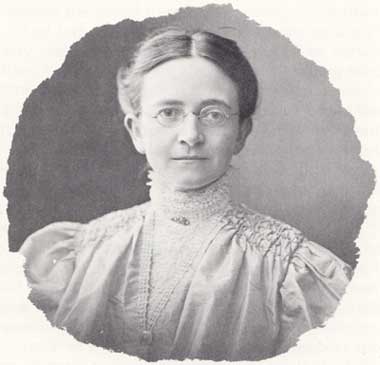Harriet. No, not as a joke but as a cure, a necessary medicine to
have on hand in the far away Orient! Mary found the culprit
bottle, one-half full. She shook out the sneeze-making enemy
from her clothes, successfully. To Mary it was her first calamity,
not to be dwelt upon, to only laugh at. lt turned into a blessing as
one of the Missionaries was taken ill on ship board and Mary used
red pepper tea as one of the home cures she brought with her.
lt worked! !
Unique experiences and trying ones were to mingle with the
pioneer work of these early teachers in mission schools, but Mary
never regretted leaving her home land to help children far across
the Pacific. Three months of trying experiences in house hunt-
ing for their school and kindergarten center, also plans for evangel-
istic work, followed. The greatest obstacle was from priests who
opposed them; the superstitions and fears which the priests had
built up in the minds of the people were beyond belief! They met
some American nuns who were glad to confide their struggles; who
said, "and to think we are under such priests and bishops and can
never return to our home in America". This lsland Country was
probably the most completely Roman Catholic land in Asia.
Although Mary and the other missionaries had gathered about
them friends from government and social service centers and some
of the earlier missionaries, all warned them that their stated ideals
and hopes of accomplishment would be impossible to bring about.
After a long search, at last they found a suitable home and
center at 168 Amera Ermito Avenue. The school fees brought in
very little money toward their expenses. Heat in April and May
was exhausting, and Mary felt physically and spiritually exhausted.
Her school was about twenty minutes away nearer the city. Life
was extremely difficult, but not without humor.
They were looking for a cook and it fell to Mary’s lot to
interview the applicants. Finally one was selected, but the next
one seemed more promising. When Mary had to refuse him he
said, "Come nexty time, want cook, sometime you catchie cook,
you cathchie me".
Mary went visiting to get children for her school. The huts
were on poles, to provide against wet weather, no glass in windows,
only bamboo doors and blinds to keep out the rain. One room
was reserved for the pet — chickens — two rooms for the family.
On the wall was a poor paper picture of a Madonna with a tiny
11.

